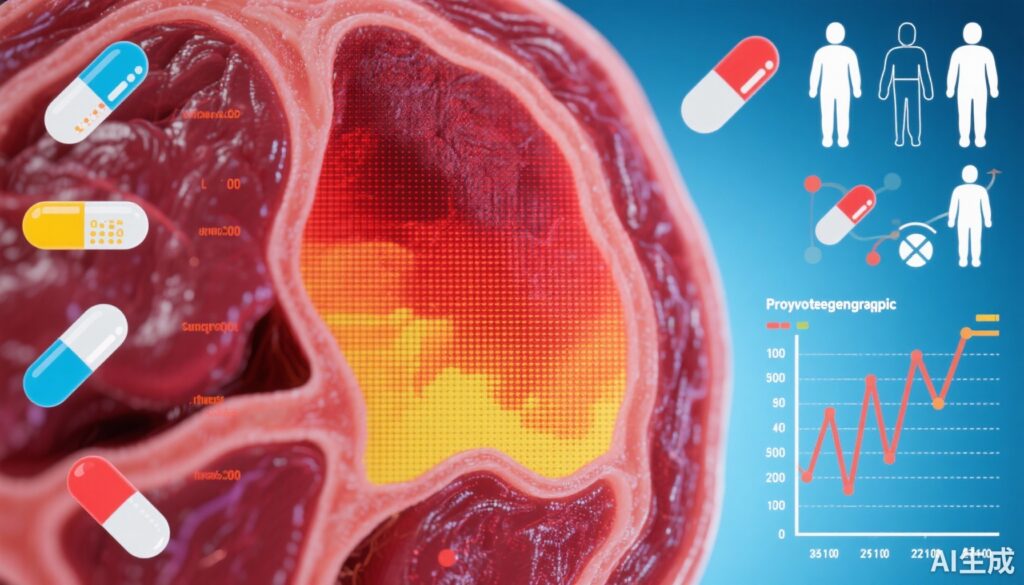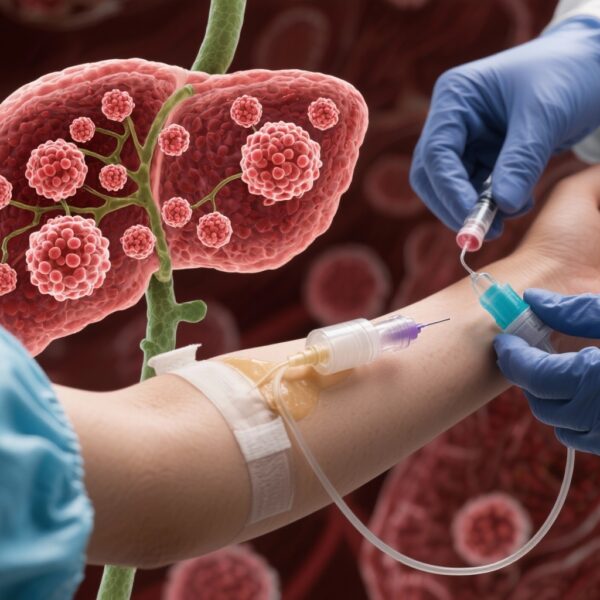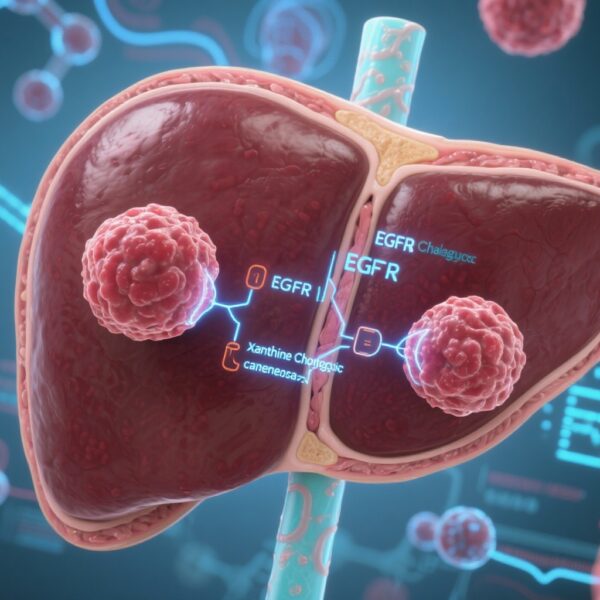Highlight
This landmark study provides proteogenomic characterization of extrahepatic cholangiocarcinoma (EH-CCA) in a prospectively randomized trial and identifies molecular biomarkers predictive of differential response to adjuvant chemotherapy regimens. Key highlights include: (1) Identification of genomic aberrations such as TP53, SMAD4, KRAS mutations and amplifications that correlate with disease-free survival (DFS) and chemotherapy sensitivity; (2) Recognition of homologous recombination deficiency (HRD) and specific chromosomal alterations associating with better outcomes on gemcitabine plus cisplatin (GemCis) versus capecitabine; (3) Development of a machine-learning model integrating multiomic data to stratify patients into groups predicting benefit from GemCis or capecitabine, facilitating precision therapy.
Background: Clinical Context and Disease Burden
Cholangiocarcinoma, a malignancy arising from the bile duct epithelium, has heterogeneous clinical behavior and molecular profiles. Extrahepatic cholangiocarcinoma (EH-CCA) comprises tumors located outside the liver parenchyma and is associated with a generally poor prognosis. Surgical resection remains the mainstay for localized disease; however, high recurrence rates necessitate effective adjuvant therapies. Currently, adjuvant chemotherapy options include capecitabine or gemcitabine combined with cisplatin (GemCis), but no biomarkers reliably predict which patients will benefit more from one regimen versus another. A deeper molecular understanding of EH-CCA is critical to advance personalized treatment and improve outcomes.
Study Design
The study leveraged samples and clinical data from the STAMP trial (NCT03079427), a randomized phase II trial enrolling 101 patients with resected EH-CCA. The trial compared adjuvant capecitabine monotherapy versus GemCis doublet chemotherapy. Of the intention-to-treat population, 89 patients provided adequate tumor specimens for integrative proteogenomic analyses. Tumor samples underwent whole-exome sequencing to identify somatic mutations and copy number variations, alongside proteomic profiling to quantify protein expression. The analyses included prespecified exploratory biomarker investigations correlating molecular features with disease-free survival (DFS) and interactions with chemotherapy regimen to identify predictive biomarkers.
Key Findings
Genomic Landscape and Prognostic Biomarkers: Mutational profiling revealed TP53 mutations in 63% of cases, SMAD4 in 20%, and KRAS in 18%, consistent with prior cholangiocarcinoma cohorts. Homologous recombination deficiency (HRD) was identified in 11% of patients, microsatellite instability was rare (1%), and 15% harbored actionable mutations per ESCAT guidelines. Notably, mutations in PIK3CA and FBXW7 correlated with poorer DFS, whereas amplification at chromosome 11q13.3 was associated with improved DFS, suggesting these alterations serve as prognostic biomarkers.
Predictive Biomarkers and Treatment Interaction: Specific chromosomal alterations demonstrated significant interaction with the chemotherapy regimen. Amplifications at 8q24.21, 3q26.1, and 4p16.3, deletion at 8p23.1, and HRD status predicted greater benefit from GemCis compared to capecitabine. These findings underscore that tumor molecular context influences chemosensitivity.
Machine-Learning Model for Treatment Stratification: To harness these multiomic predictive features, investigators developed a machine-learning model that calculates the conditional average treatment effect at an individual level. This model stratified patients into three groups: those predicted to benefit most from GemCis, those with no significant predicted difference between regimens, and those predicted to have better outcomes with capecitabine. This stratification showed statistically significant interactions with actual treatment and DFS, offering a promising tool for personalized chemotherapy selection.
Expert Commentary
This study is a pioneering example of integrating proteogenomic data into clinical decision-making for EH-CCA. It demonstrates the feasibility and clinical relevance of collecting comprehensive molecular profiles from surgical specimens within a randomized trial. Identifying biomarkers that predict chemotherapy benefit addresses a critical unmet need, as current guidelines lack robust molecular-driven recommendations. The machine-learning model represents an innovative approach to operationalize complex data for clinicians. However, the relatively small sample size and the exploratory nature of the analysis necessitate validation in larger, independent cohorts before routine clinical implementation. Additionally, whether these biomarkers predict benefit across different ethnic populations or in other biliary tract cancer subtypes remains to be determined. Mechanistically, alterations like PIK3CA mutations imply pathway-driven resistance, while HRD may enhance sensitivity to DNA-damaging agents such as cisplatin, providing biological plausibility.
Conclusion
This comprehensive proteogenomic profiling within a prospective randomized trial context advances personalized medicine in extrahepatic cholangiocarcinoma. The identification of prognostic and predictive molecular biomarkers linked to chemotherapy regimen efficacy offers a framework to guide adjuvant treatment selection and improve patient outcomes. Further validation and integration with clinical variables will be essential to confirm the utility of these findings and facilitate biomarker-driven therapeutic strategies in routine practice.
Funding and Clinical Trial Information
The study was conducted within the framework of the STAMP trial (ClinicalTrials.gov identifier: NCT03079427). Detailed funding sources were not specified in the provided data.
References
Jeong H, Oh JH, Ahn HS, Ryoo BY, Kim KP, Jeong JH, Park I, Hwang DW, Lee JH, Song KB, Lee W, Kim KH, Moon DB, Song GW, Jung DH, Hong SM, Park CW, Baek IP, Cho YS, Kim K, Sung CO, Yoo C. Proteogenomic profiling predicts outcomes of adjuvant chemotherapy in extrahepatic cholangiocarcinoma. J Hepatol. 2025 Aug 11:S0168-8278(25)02402-X. doi: 10.1016/j.jhep.2025.07.031. Epub ahead of print. PMID: 40803577.



